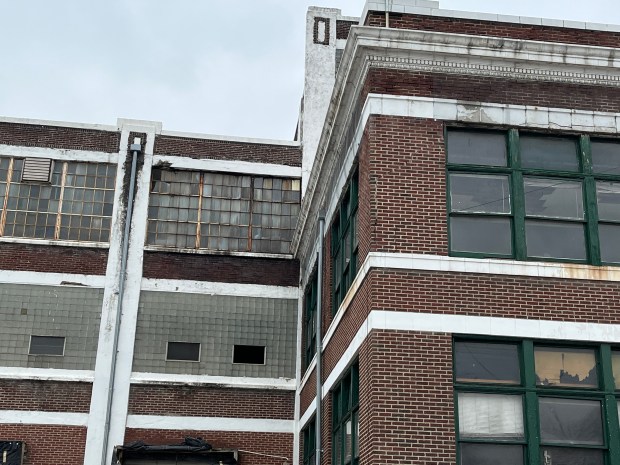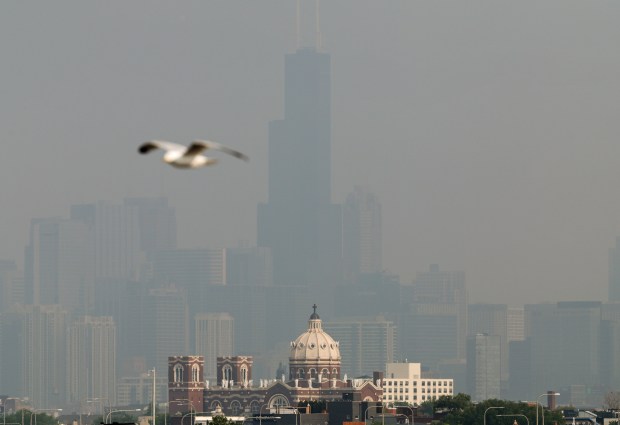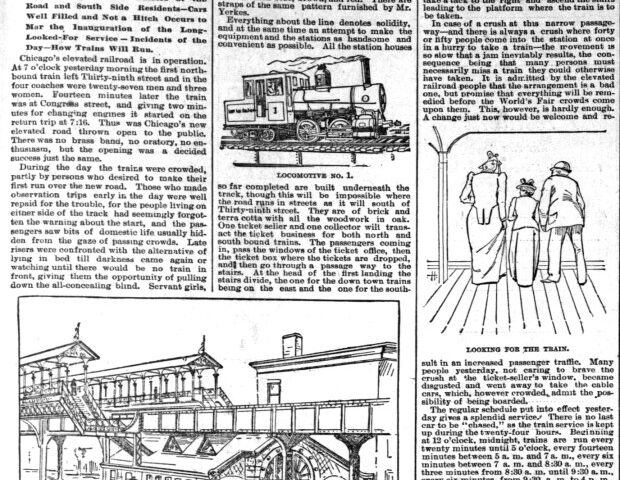After years of legal battles over a slew of building code violations, the owners of the Libby, McNeill and Libby building in Blue Island transferred ownership to the city under an agreement approved by the City Council Tuesday.
To avoid further financial loss after the city placed a lien on the property for unpaid water bills, the owners transferred the deed to the city in lieu of foreclosure, according to the agreement. Records from the Cook County clerk’s recordings division show the city filed a lien on the property for unpaid water bills of $9,950 in October 2023.
The building, a century-old former canning and bottling plant, was donated in 2017 to two nonprofits — Affordable Recovery Housing and Residence for Patriots Services — according to a trustee’s deed documenting the transfer.
In 2022, after Patriots Services relinquished its ownership rights, Affordable Recovery began planning to convert the space into the Fun Factory Sports and Practice Park, a recreational center aimed at providing a safe, engaging environment for recovering addicts and local residents, court records show.
But the city opposed the plan proposed by the nonprofit’s president, John Dunleavy, due to concerns about his upkeep of the building. Building inspectors issued more than 100 violations, citing overgrown weeds, structural problems and general neglect.
City Administrator Tom Wogan said an attorney for Affordable Recovery Housing reached out to the city seeking to facilitate the transfer.
Several developers have expressed interest in the property over the last few years, Wogan said, and now that the city holds ownership, it can begin exploring options to revitalize the site.
The five-story, 500,000-square-foot building, which sits on several acres in Blue Island, was named one of Illinois’ Most Endangered Historic Places of 2024 by Landmarks Illinois, a nonprofit dedicated to preserving the state’s architectural heritage.
Dunleavy and Mary Jo Dunleavy, executive director of Affordable Recovery Housing, could not be reached for comment.
The property has deteriorated over the years, with a pothole-ridden parking lot strewn with trash and broken glass. The entrances to the Libby building are boarded up, its windows are battered and parts of the structure appear to be crumbling.
After the nonprofit assumed ownership of the building, efforts to move forward with redevelopment plans were repeatedly delayed as the city and Affordable Recovery Housing became entangled in legal disputes over building code violations.
In May 2022, Blue Island issued a cease-and-desist letter calling for the facility to shut down. A month later, the city filed a motion for injunctive relief seeking a court order to block the nonprofit’s plans for a fun factory at the site, after Dunleavy’s attorney indicated they had no intention of complying, according to court records.
The injunction request stated the premises were unfit for occupancy and owners did not have a valid city business license.
The court granted the city’s request in January 2023, but records show the case remains pending. The most recent action came in 2024, when the court reversed an earlier decision that allowed Affordable Recovery Housing’s attorney, Andy Norman, to withdraw as counsel. The judge also denied the city’s request for a default judgment after the defendants failed to appear in court.
In April 2023, Blue Island leveled another complaint against the nonprofit asking a judge to declare the property in violation of the city’s building codes, dangerous, unsafe and abandoned, court records show.

In the complaint, the city claimed the nonprofit and its owners had not paid property taxes for at least two years and the dilapidated condition of the Libby building made it attractive to vagrants.
According to the Cook County treasurer’s office, since taking ownership of the Libby building, the nonprofits have not paid any property taxes and owe the county about $5.2 million.
The Illinois Department of Revenue website states nonprofit owners don’t automatically receive property tax exemption, and the property tax records show they never applied for exemptions.
For 2023 and 2024, the property owners owed $2 million in unpaid property taxes and the total debt attributed to the property’s value was estimated at 15.7%, according to the treasurer’s office. The property was last assessed at about $3.5 million, with an estimated market value of $13.9 million, according to the county assessor’s office.
The lot size is more than 833,000 square feet, and the property’s assessed value has risen significantly since the nonprofit took ownership. In 2018, the property was assessed at about $1.5 million, with a property tax bill of $577,000, according to tax records and the treasurer’s office.
Dunleavy previously told the Daily Southtown he hoped to resolve legal disputes with the city, and said he was unable to work on fixing the alleged violations until the city granted building permits.
The Libby building was constructed in 1918, during a time when the Libby, McNeill and Libby company was the nation’s second-largest canned food producer, employing up to 800 workers during peak summer months, according to Landmarks Illinois.
The factory shut down in 1968, and in the 1990s, the building served as an incubator for startup businesses before being transferred to the nonprofits. Since then, it has remained largely vacant.
After years of neglect, Wogan said he hopes to bring in a developer who can transform the property into a safe and valuable asset for the community.
smoilanen@chicagotribune.com





